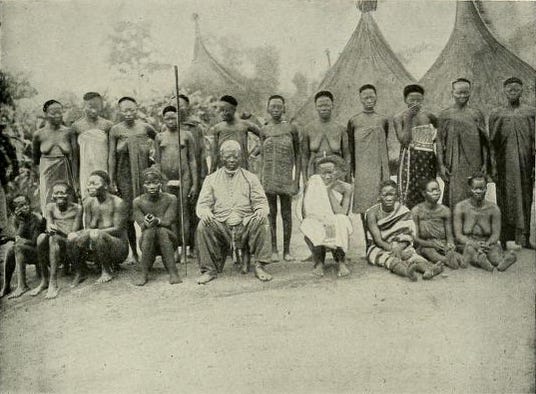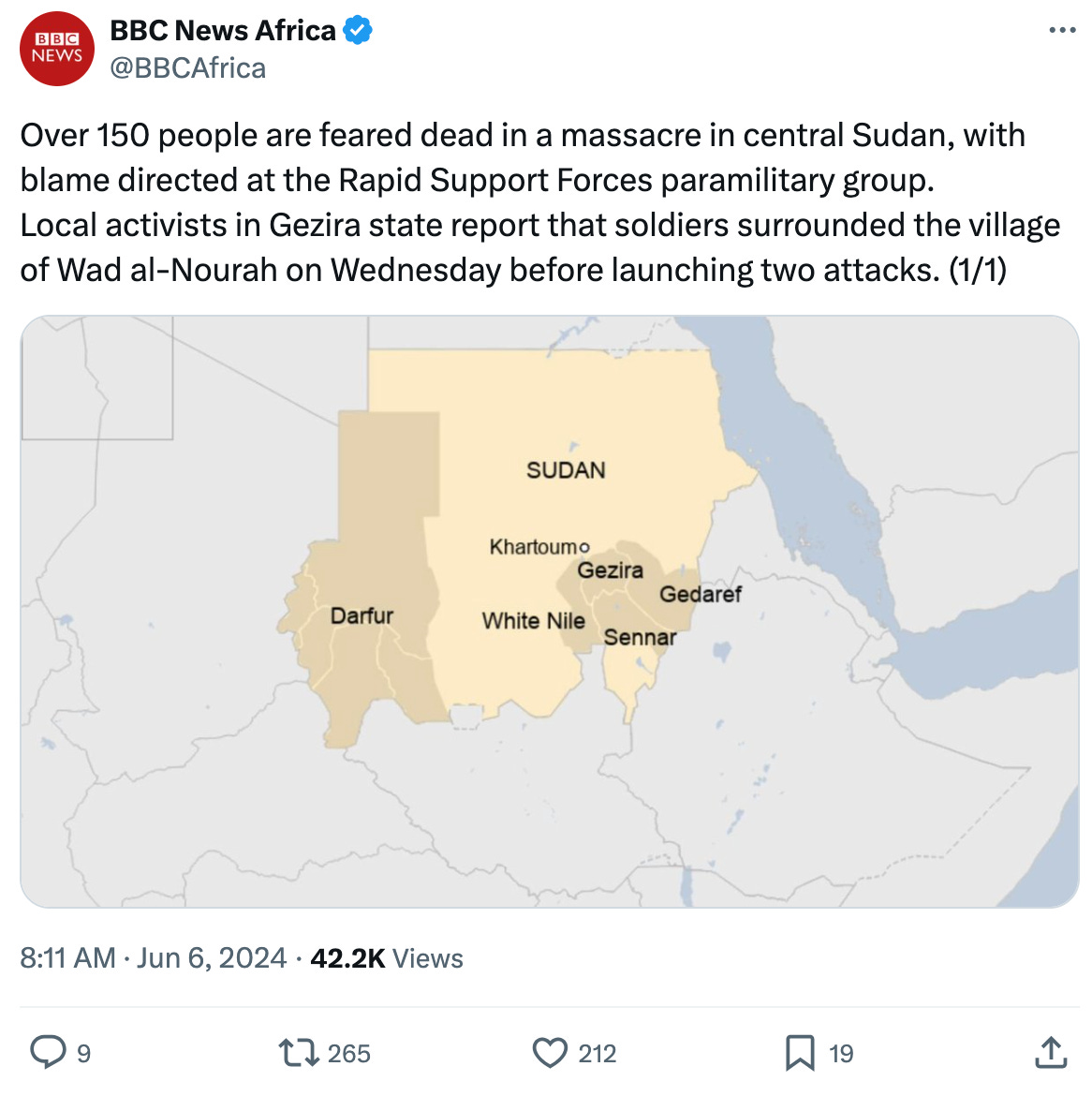🔅 Reparations: Navigating the Rise of the Far Right
The TikTok Sensation Schooling the West on Africa, and Sudan's Deadly Conflict
Image of the Day

Spotlight Stories
Reparations Talk: Navigating the Rise of the Far Right
Cape Verde's president, José Maria Neves, finds himself in a bit of a pickle when it comes to discussing colonial reparations. On one hand, he believes it's a conversation that needs to happen. On the other, he's keenly aware that the rise of rightwing populism has made it about as easy as navigating a minefield while blindfolded.
Neves says that debating reparations in the "public arena" could lead to more political polarisation in countries like Portugal, Cape Verde's former coloniser, where the far right is on the rise.
Behind Closed Doors: The Diplomatic Approach to Reparations
But Neves isn't one to back down from a challenge:
He argues that just because it's difficult to have these conversations publicly doesn't mean governments should avoid them altogether. Instead, he suggests using "diplomatic corridors" to "build solutions" without contributing to the growth of extremist groups.
The reparations debate got a major boost in April when Portugal's president, Marcelo Rebelo de Sousa, admitted that his country was responsible for crimes committed during transatlantic slavery and the colonial era. He even suggested that there was a need for reparations.
Unsurprisingly, his comments sparked a national debate and drew strong criticism from rightwing parties. It turns out that acknowledging your country's dark past and suggesting you might need to make amends isn't exactly a popular stance among the "make Portugal great again" crowd.
The idea of paying reparations or making other amends for transatlantic slavery and colonialism has been around for a long time, but it remains deeply disputed.
Opponents argue that contemporary states and institutions shouldn't be held responsible for their past, which is a bit like saying you shouldn't have to pay your great-grandfather's gambling debts.
But advocates of reparations point out that the legacy of slavery and colonialism, such as systemic and structural racism, is still very much alive and well. They argue that contemporary states continue to benefit from the wealth generated by hundreds of years of exploitation.
Despite the challenges, the reparations debate seems to be gaining momentum worldwide. And with leaders like Neves and Rebelo de Sousa willing to broach the subject, even if it means doing so behind closed doors, there's hope that progress can be made.
Charity Ekezie: The TikTok Sensation Schooling the West on Africa, One Sarcastic Video at a Time
When Charity Ekezie first joined TikTok in 2020, she had no idea that her journey to keep her journalism skills sharp would turn into a full-blown mission to educate the world about Africa.
As she started posting videos from her home in Minna state, Nigeria, she quickly realised that some people in the US, UK, and other European countries knew nothing about the continent. Commenters asked her how she had a phone or whether there was water in Africa, and Ekezie's first thought was, "Wait, are you serious?"
With wit, and a whole lot of patience, Ekezie began responding to these questions in her signature style.
From explaining the "spitting festival" that purifies saliva into drinking water to dancing in a lake with her cousins to prove that, yes, there is indeed water in Africa, Ekezie's sharp and humorous rebuttals have earned her a combined following of more than 4.5 million across various social media platforms.
Dealing with Racism and Uniting Africans
While Ekezie's videos have attracted millions of views, they've also brought out the worst in some people. When she posted a video of herself and her cousins dancing in a brown lake, racist comments flooded in, comparing her skin colour to the water's hue and leaving monkey emojis.
However, she has also received an outpouring of support from Africans across the continent, who join in on the joke and celebrate their unity in the comments section. One person even told her, "You are single-handedly going to unite Africa."
Through her experience, Ekezie has learned that "Africa has zero PR in the west, and people really don't know anything about us." She's grateful that social media allows her to share her perspective and show that Africa is not the "miserable jungle" that some people believe it to be.
While she acknowledges that African countries aren't perfect, Ekezie is determined to put the continent's best foot forward. "People need to know that, in as much as we have our own problems, we are also amazing. We have amazing culture, amazing food, amazing people," she says.
Sudan's Village Massacre
In a grim turn of events, at least 150 people are feared dead in a massacre in the central Sudanese village of Wad al-Nourah. The finger is being pointed at the Rapid Support Forces (RSF), the paramilitary group currently locked in a bitter battle with the army for control of the country.
The RSF has remained tight-lipped about the accusations, but they did say they attacked two army positions on Thursday.
Footage circulating on social media after the raid showed dozens of bodies wrapped in white shrouds, prepared for burial – a sobering reminder that while the two generals at the helm of this conflict play their deadly game of chess, it's the civilians who pay the ultimate price.
Famine, Displacement, and Failed Peace Talks
As the RSF and military continue their relentless battle, the people of Sudan are facing unimaginable hardship.
Across the country, more than 15,000 people are estimated to have been killed since the conflict started in April 2023. Several rounds of peace talks have failed to end the war, proving that even the most skilled negotiators are no match for the complex situation on the ground.
The UN has warned that the fighting has sparked the world's largest displacement crisis, with millions facing a hunger catastrophe.
Food for Thought
“When you befriend a chief, remember that he sits on a rope."
— Ugandan Proverb







